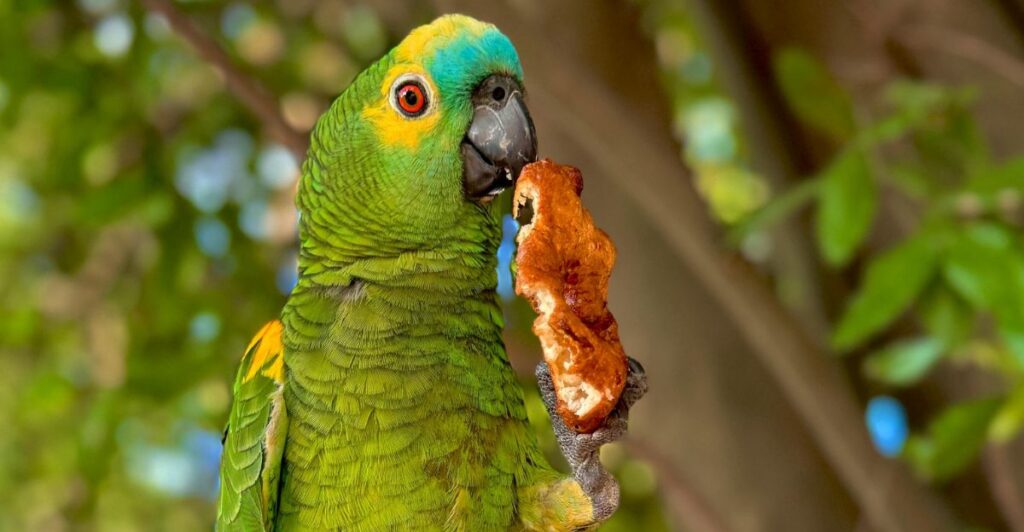
Birds will try to eat just about anything, but their little bodies can’t handle everything we snack on. Some everyday foods, like avocado and chocolate, are more dangerous than you’d think—causing anything from stomach trouble to serious health issues.
Even salty chips or fruit seeds can pack hidden risks for your feathered guests. It’s easy to assume what’s safe for us works for them. However, birds have their own dietary rules—be it a backyard visitor or a beloved pet.
Let’s discuss the 12 foods that might seem harmless but can cause real harm to birds. What you feed them could mean the difference between happy chirps and a trip to the vet.
1. Avocado Toxins Can Stop Hearts
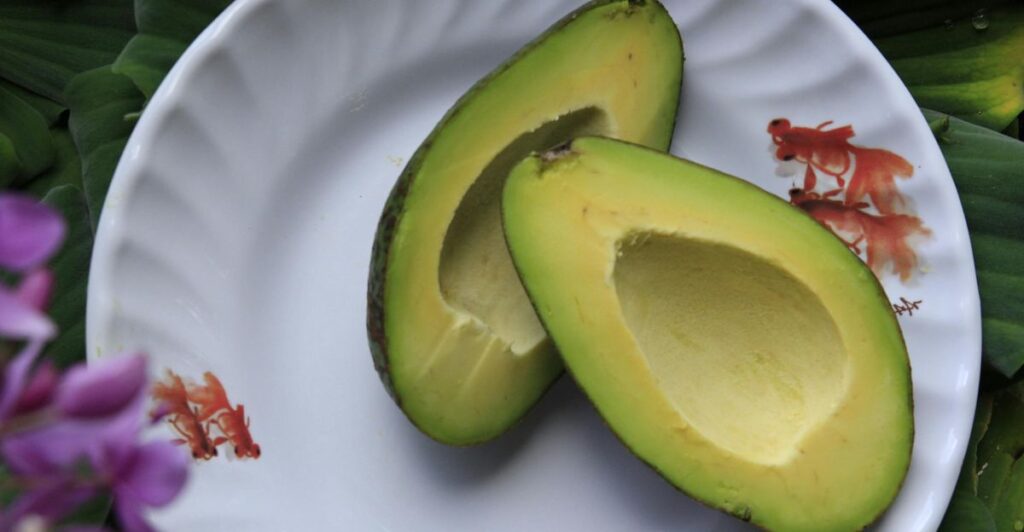
Avocado might be a superfood for humans. Sadly, for birds, it’s a silent killer. The fruit contains persin, a fungicidal toxin that can wreak havoc on their tiny systems. Just a small amount can cause breathing difficulties, fluid buildup around the heart, or even a sudden stroke.
If you have avocado toast lying around, keep it far from your feathered guests. A little care in what you leave accessible can make all the difference in protecting their fragile health.
2. Chocolate Harms Bird Nervous Systems

Avoid leaving chocolates where curious birds can reach them. For most birds, wild or not, keep this indulgence out of sight for their safety. Remember: Chocolate is a treat for us and a deadly trap for birds.
It contains theobromine and caffeine, which their bodies can’t process. Symptoms like vomiting, diarrhea, seizures, or even life-threatening issues can follow if a bird gets a taste of your candy bar.
3. Caffeine Overloads Lead To Health Woes
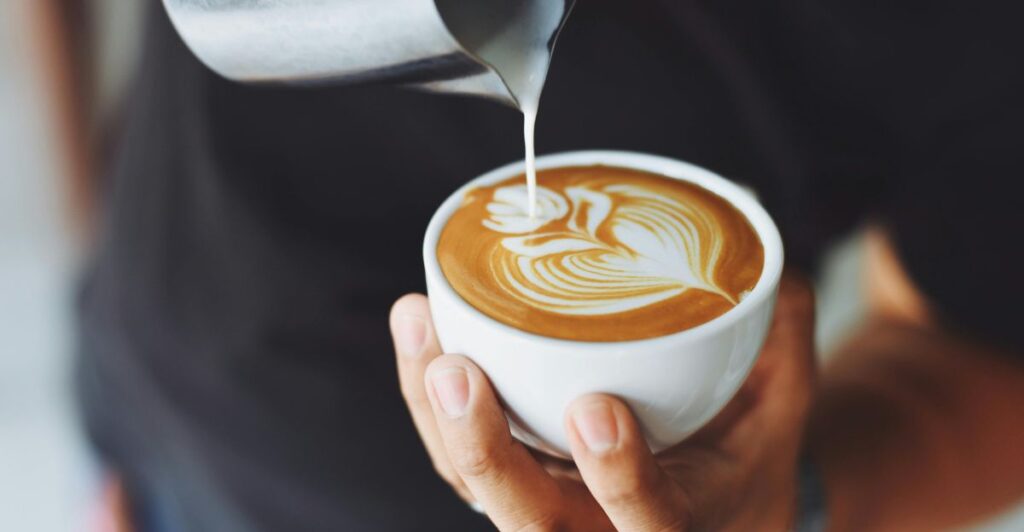
A sip of coffee or tea might perk you up, not birds. Caffeine is a dangerous dose of overstimulation for them, which causes hyperactivity, increased heart rate, and even cardiac arrest.
Even a tiny amount can have devastating effects. So, if your bird is eyeing your morning cup, make it firmly out of reach. Sticking to water and bird-safe drinks is a good way to protect them from reaching out to a coffee mug.
4. Tomato Stems Are Lethal Parts
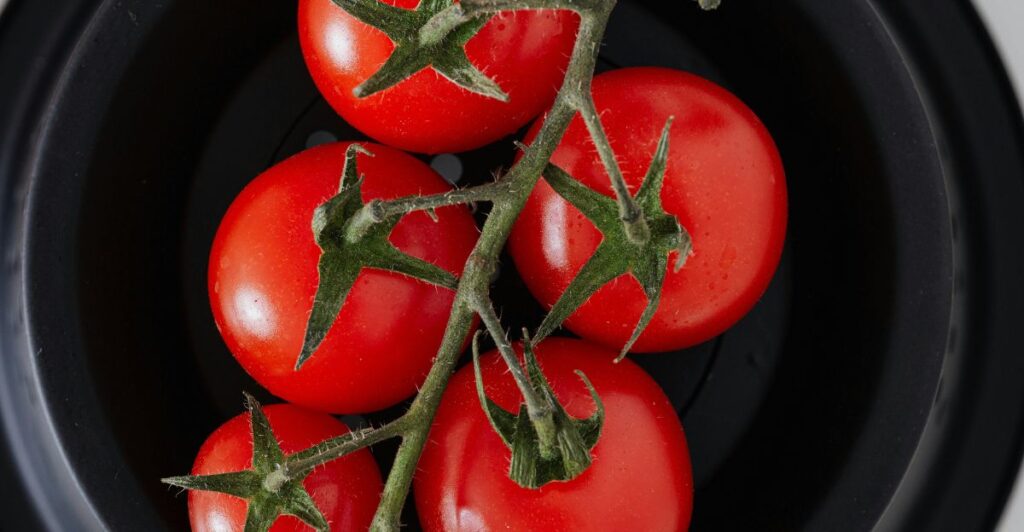
Tomatoes themselves are fine for birds in moderation; it’s the stems and leaves that have a different story. They contain solanine—a natural toxin known for causing stomach trouble, weakness, or even neurological problems in birds.
To be on the safe side, always remove the green parts before sharing a slice of tomato with your feathered friends. Better yet, stick to bird-safe fruits and vegetables to avoid any accidental exposure to harmful compounds.
5. Onions and Garlic Damage Blood
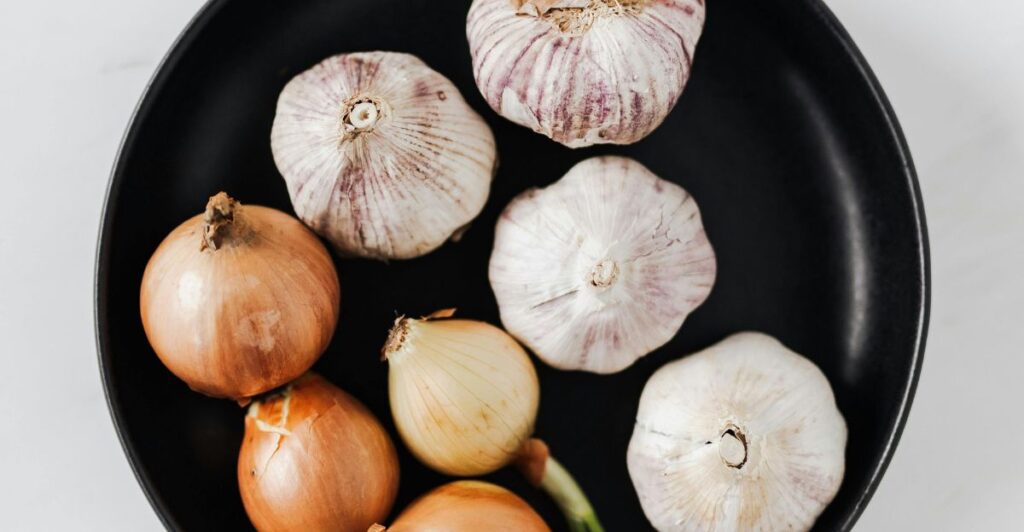
Whether raw, cooked, or powdered, onions and garlic should be completely avoided in bird diets. Small amounts mixed into food can also pose serious risks.
Onions and garlic are famous flavors for your meals, but they’re bad news for birds. These kitchen staples contain sulfur compounds that can damage red blood cells, as they can cause anemia, weakness, and breathing difficulties.
6. Salt Dehydrates and Wrecks Kidneys
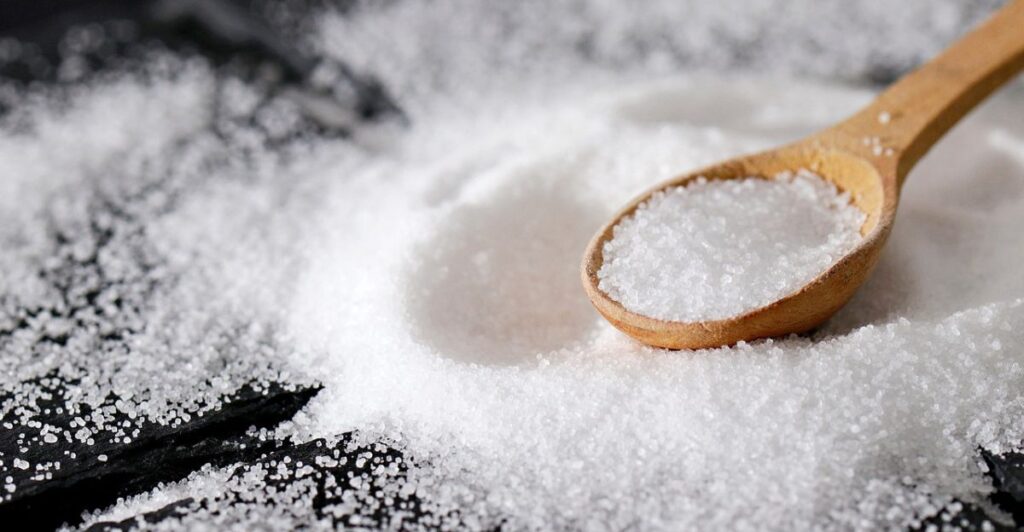
A sprinkle of salt brings out the best in your food. However, the small bodies of birds can’t handle the sodium. Salt can lead to dehydration, kidney damage, or even demise in severe cases. Salty snacks like chips or pretzels are especially dangerous.
Therefore, always keep salty foods off the menu for birds. Try to take simple precautions, like cleaning up crumbs or avoiding shared snacks—they can go a long way in safeguarding their health.
7. Fruit Seeds Contain Deadly Cyanide
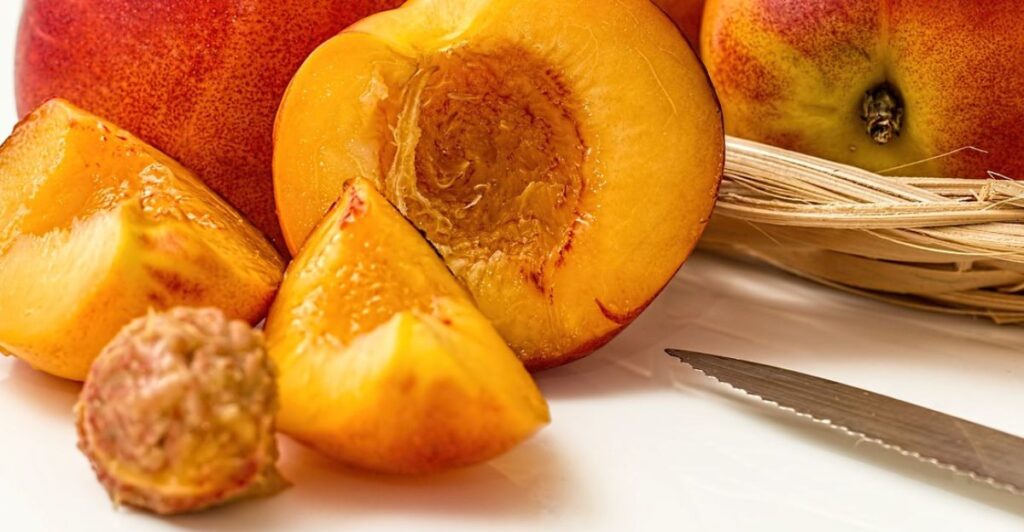
The sweet, juicy flesh of apples, cherries, and peaches is also not a safe bird snack. Those seeds and pits hide amygdalin, a compound that releases cyanide when broken down. No matter the dosage, it can poison birds.
Cyanide affects their ability to absorb oxygen and can instill abnormalities like lethargy and difficulty breathing, which might put their life at risk. So, if you’re sharing fruit with birds, make sure to remove all seeds and pits first to avoid turning a treat into a tragedy.
8. Raw Beans Poison Bird Stomachs
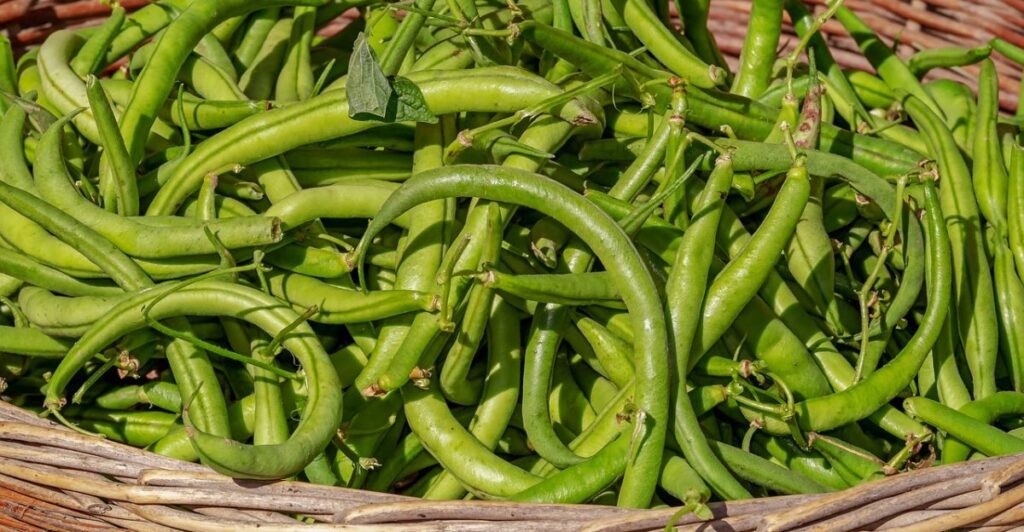
Uncooked beans are tiny, innocent-looking threats that pack a deadly punch for birds. They contain hemagglutinin, a toxin that can cause severe digestive issues and other health complications. Only a few beans are enough to pose serious risks to their fragile systems.
Thankfully, cooking neutralizes the toxin, so properly prepared beans are fine in small amounts. But raw or dried beans should always be kept out of a bird’s reach. When you’re not sure, it’s safer to avoid them altogether.
9. Some Mushrooms Destroy Vital Organs
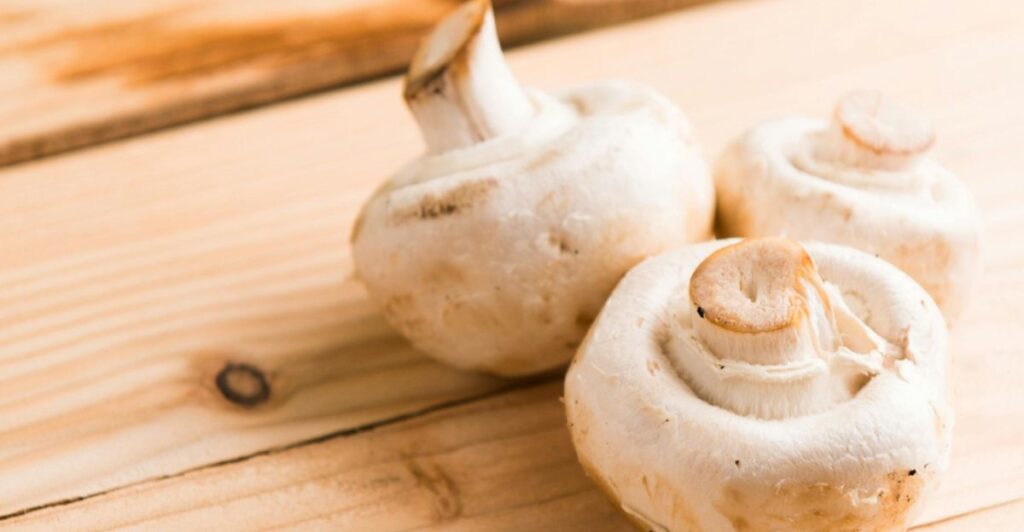
While wild birds might nibble on fungi in nature, not all mushrooms are healthy. Some contain compounds that can damage their vital organs. Store-bought varieties like button mushrooms are generally safe, but wild ones are a gamble.
Since birds can’t tell the difference between toxic and non-toxic mushrooms, you must not take a chance. A little caution can save your cute little feathered companions from unnecessary health issues.
10. Fatty Foods Cause Obesity Problems
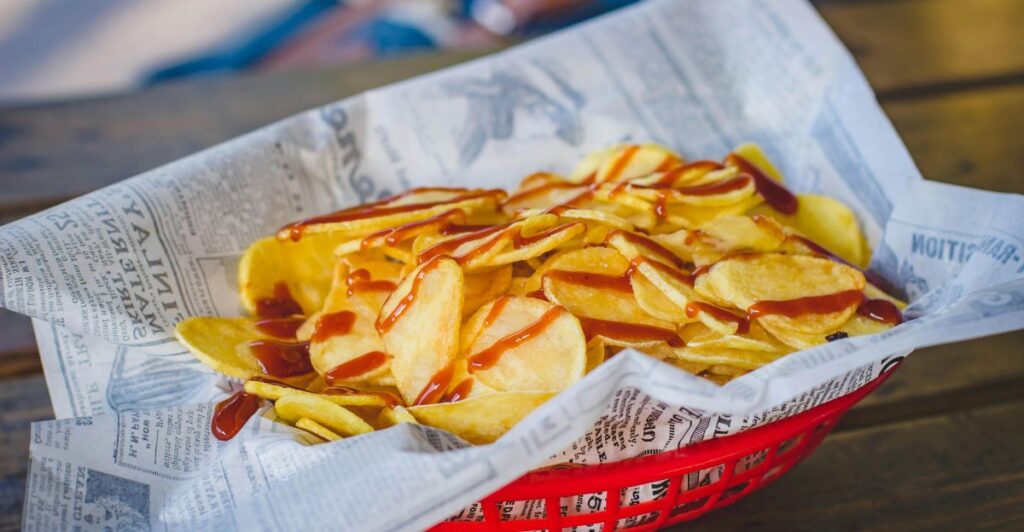
Pamper your birds with natural, healthy options like seeds or fresh fruits. Keeping their diet balanced will ensure they stay energetic and free from preventable health issues.
High-fat foods like bacon, chips, or butter are filled with excess fat that birds can’t handle. Such foods can give rise to obesity, liver disease, and other complications, especially for pet birds with limited exercise options.
11. Xylitol Drops Bird Sugar Levels
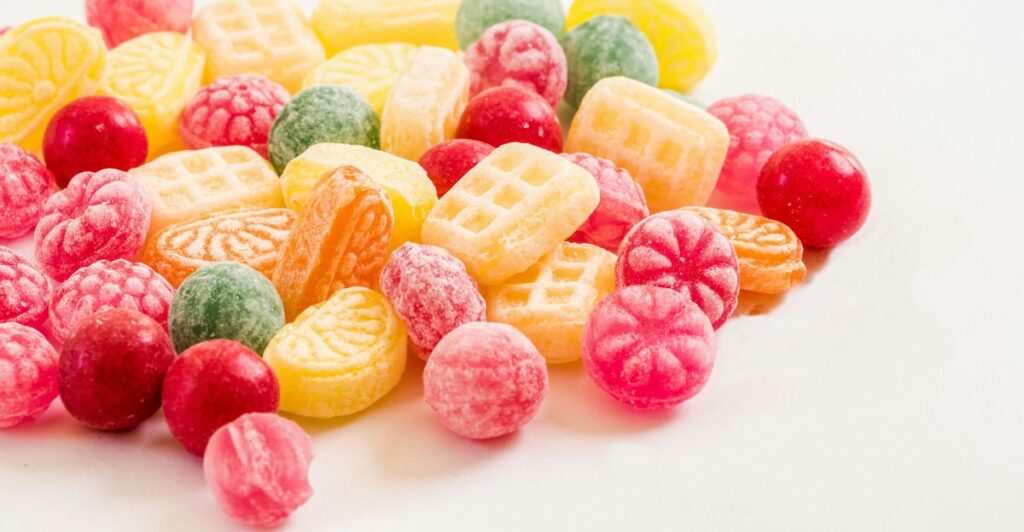
The substance xylitol is present in sugar-free gums, candies, and baked goods. This artificial sweetener causes a rapid drop in blood sugar levels. You’ll be looking at problems like hypoglycemia, disorientation, and even seizures if birds ingest it.
Birds don’t need those artificial sweeteners in their diet. So, always check labels if you’re sharing snacks. Put xylitol items far from their reach—the safest way to avoid unnecessary emergencies.
12. Dairy Doesn’t Sit Well With Birds
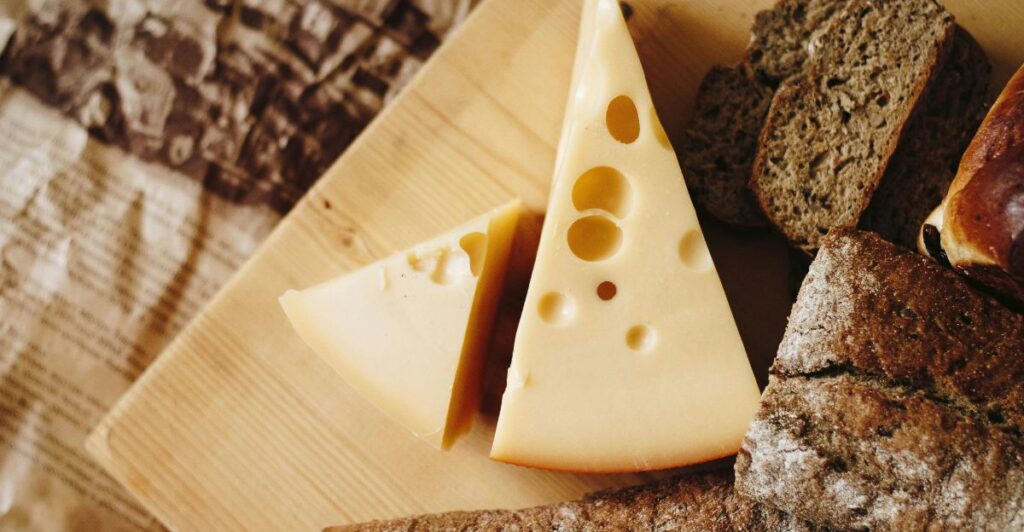
Birds can’t digest lactose. Therefore, dairy products like milk, cheese, and yogurt are not good snacks. Consuming dairy makes way for bloating, loose stools, or general discomfort, as their systems aren’t equipped to break it down.
It’s better to avoid feeding them anything made with milk so the birds stay healthy and happy. Stick to other liquids that their bodies are designed to handle instead. For example, bird-safe liquids like fresh water.
Stay connected with us for more stories like this! Follow us to get the latest updates or hit the Follow button at the top of this article, and let us know what you think by leaving your feedback below. We’d love to hear from you!







